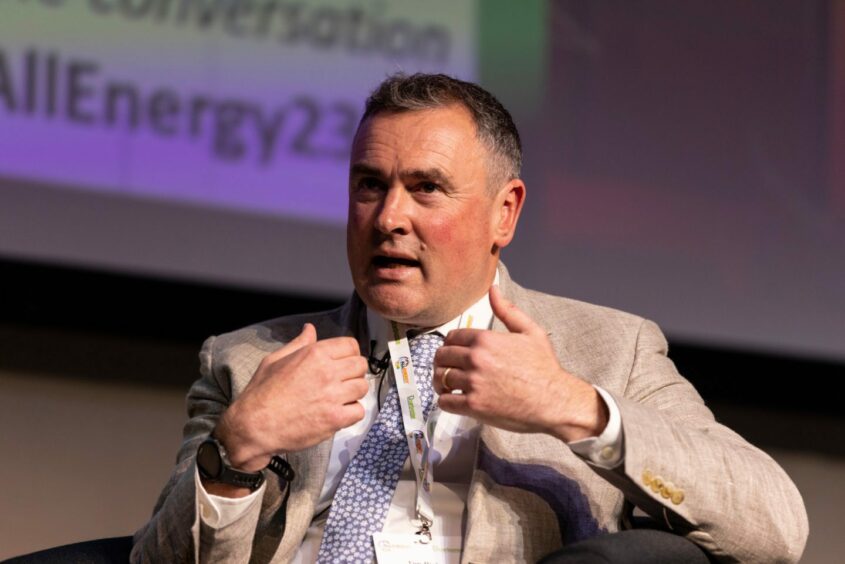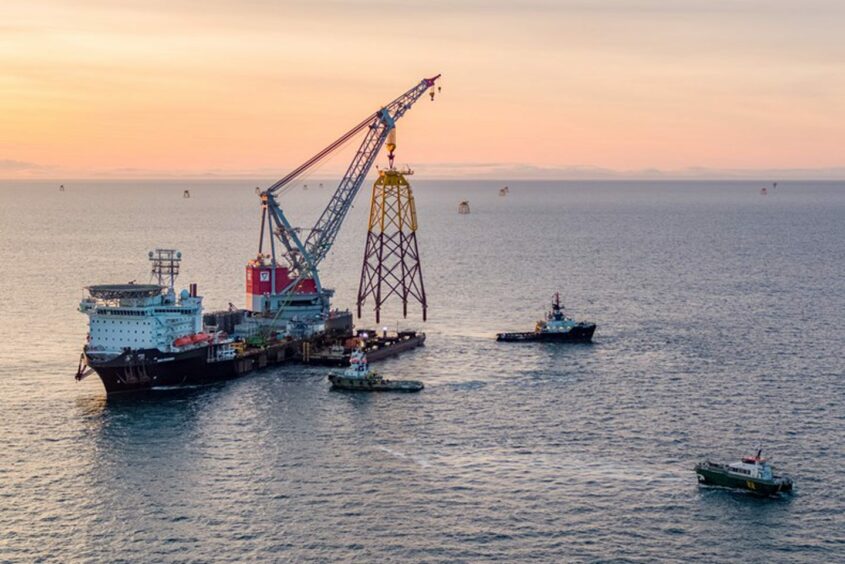
Tim Pick commended the offshore wind industry for its steady cost reductions during an event in Aberdeen on Tuesday.
The government’s offshore wind champion says the UK has “done the whole world a favour” by proving that the technology can be price competitive.
“Maybe we’ve gone a bit too far on the aggressive price based auctions,” he conceded though, highlighting the need for a “rebalancing” of the market.
Westminster’s Contract for Difference (CfD) mechanism has been widely praised for helping to gradually reducing the cost of offshore wind deployment.
But with inflationary pressures gripping the sector there is a growing feeling that prices have fallen too far with renewables companies now struggling to turn a profit.
The scheme has also attracted criticism for focussing too much on cost, rather than promoting local content and the supply chain.
Balancing price, jobs and growth
Since the publication of his UK Government ordered report on the health of the wind sector earlier this year, Mr Pick has been travelling the length and breadth of the country presenting his findings.
Speaking at an Offshore Energies UK (OEUK) event at the P&J Live in Aberdeen, he said: “In general, offshore wind is a very positive story about a 20 year growth. The UK has been has done the whole world a favour in bringing down the cost of offshore wind.
“That’s through scale and innovation, it’s not through auction design – they have effectively pushed that by being aggressive and I think maybe we’ve gone a bit too far on the aggressive price based auctions.
“From my perspective there is a need for a sort of rebalancing of this now – there needs to be a more robust conversation about the trade-off between price, jobs and growth etc.”
He also used his speech to promote the importance of “non-price factors” in CfD awards, and described the timing of auctions as a “big problem for the supply chain”.
Questions to be asked over supply chain impact
OEUK’s business breakfast, entitled Wind: Powering the UK offshore future, also featured speakers from Ocean Winds, Proserv, Shell and Flotation Energy.
Katy Heidenreich, the trade body’s supply chain and people director, opened the event, drawing attention to the UK’s poor record on using local content in offshore wind projects.
She said: “The opportunity in front of us is huge. We have an energy supply chain with over 50 years of expertise in delivering large-scale oil and gas projects, and a workforce that will be vital to delivering the UK’s ambitious offshore wind programme.
“However, we are facing significant challenges. The size of the UK supply chain, indeed the global supply chain, isn’t nearly big enough to deliver the targets we are aiming for. The growth in wind power won’t happen unless the supply chain grows as well.
“For a country with a proud maritime and industrial heritage, it’s right that questions are asked as to why so much of what we need to build our wind farms is increasingly shipped in from countries many thousands of miles away and supporting other economies.
“The supply chain cannot invest in capacity unless they have a framework to show they can make money before they invest. Developers can’t take the cost inflation risk unless they see mechanisms to recover the cost. These new realities aren’t yet reflected in policies.”
Recommended for you


 © Supplied by SSE Renewables
© Supplied by SSE Renewables © Supplied by OGUK
© Supplied by OGUK